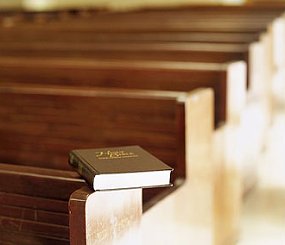The Girl Scout cookies had arrived.
They say that the way to a man’s heart is through his stomach, and to this I must attest. At least for this man. In part, anyway.
Samoas are the bullet train between my cardiac and GI functions. All toasted coconut, chocolate, overcooked caramel goodness in a cookie.
I opened the box and examined the current iteration of the cookie.
Disappointed.
See, I remember back to the days of Ronald Reagan’s “America,” when a Girl Scout Samoa was a thing of epic scrumptiousness. A big ring of coconut not only run through with veins of caramel love, but at its core a solid ring of caramel that threatened to choke you to death if you ate the cookie too fast. As thick as an index finger, too, and the chocolate drizzled over that recipe of Samoa was substantial enough to be tasted in its own right. This was heaven’s own cookie.
Which is why the pathetic replica facing me disappointed so. That chewy ring of caramel? AWOL. Just a few streaks of caramel remained. The waxy chocolate barely made a difference in taste. The whole thing served only to remind me how badly this current cookie failed to live up to the gustatory genius of its forerunner.
It’s not a matter of cost, either. I think those of us who loved Samoas would have paid twice as much to get the old version that enslaved us so. I would.
No, it’s just the spirit of the age. More of that lowest common denominator decent into blandness and underperformance.
Some soulless bean counter sat in on a meeting somewhere and said, “People won’t miss _______ if we concede to cost realities.” He had to. Because that’s what bean counters do. Marketing then finds a way to spin the change when they should be the line of defense to say, “Whoa, Nelly!”
There’s always a way to make something worse. That the way to worse is so easy to find and implement…
The lesson for the Church is to think and pray hard before jettisoning ANYTHING that is part of the recipe of the Church. If God is not specifically speaking by His Spirit to leaders regarding some big plan those leaders envision, just STOP. Chances are high that what comes out of the oven will be a tasteless disappointment.
Make a little change to a recipe and at first glance nothing may seem awry. Substituting corn oil for lard doesn’t seem wrong. Besides, it’s easier to find AND cheaper.
Tell that to the tasters when the goods are served.
But the neighbor’s recipe used oil!
The surest way for a local church to fall into the pit of lowest common denominator is to copy other churches.
Recipes are tricky. To replicate a successful one requires the precise amounts of the exact ingredients.
The same holds true for churches. Yet the conditions that led to success in one church are NEVER identical to the conditions at a different church. The Bible even notes this.  When Christ speaks to the churches in Revelation, each has its own flavor, it’s own ingredients, it’s own challenges. The wrong mix of components (or the right components baked the wrong way), and the result is a flavorless brick. While flavorless bricks may sell to the unknowing, they are not satisfying.
When Christ speaks to the churches in Revelation, each has its own flavor, it’s own ingredients, it’s own challenges. The wrong mix of components (or the right components baked the wrong way), and the result is a flavorless brick. While flavorless bricks may sell to the unknowing, they are not satisfying.
Never replicate another church’s recipe. Doing so is the shortest route to the bottom.
Again, church leaders MUST listen to the Holy Spirit because He alone has the directions a local church must take. And those directions will most likely NOT look like the directions of some other church, no matter how successful the recipe at that other church might be.
Nor can a church make concessions. All of the world, society, and the forces of hell are allied in whittling down the Church one issue at a time.
Cheapen the ingredients. Call bad good. Cut corners in the recipe. Do what’s easier. Avoid the hard work. Rush the process. It’s what everyone else is doing anyway.
No one else will know, right?
Right?
Conceding to the spirit of the age leads only to a lowest common denominator Church, a bad, tasteless replica of the real thing.
I see the Church in America rushing toward the lowest common denominator. The converse, authenticity in Christ, is hard to develop and maintain, though. I realize that, but it’s what we need to aim for. Authenticity almost never looks cookie-cutter, which is why authentic churches have their own flavor and zest. Their ingredients are unique and hard to come by, but they follow God’s recipe to the T, and the result is delicious, just what the Master Chef intended.
Today’s church landscape is littered with a homogeneous blandness and lack of discernment toward the rapid approach of the lowest common denominator. If what was once perfectly salty becomes tasteless, what good is it except to be tossed out?

 My hope is that the Church in this country will live up to the high calling for which the Lord offered Himself. I love the Church, else I wouldn't be doing any of this.
My hope is that the Church in this country will live up to the high calling for which the Lord offered Himself. I love the Church, else I wouldn't be doing any of this.